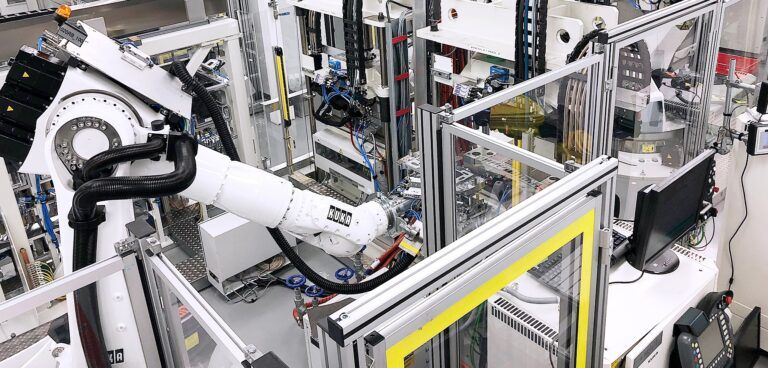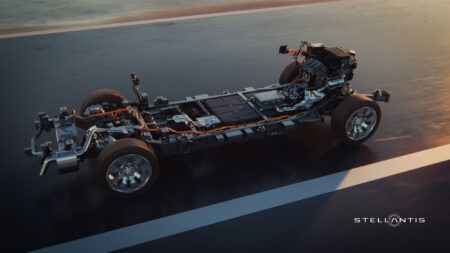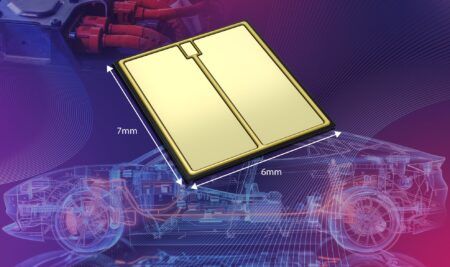If any doubt remains over the viability of fuel cell systems as a future powertrain technology, then the news that Daimler Trucks is investing heavily to create series production of them should quash that.
The manufacturer has been steadily developing fuel cells over the last ten years and is now ramping up its efforts with new state-of-the-art production facilities at its Stuttgart plant. Here, increased investment of new facilities covering every single process stage of fuel cell production from membrane coating and stack manufacturing to the production of fuel cell units, will create a technological template for series production.
“We are pursuing the vision of the CO2-neutral transportation of the future. The hydrogen-based fuel cell is a key technology of strategic importance in this context. We are now consistently following the path towards the series production of fuel cells and are thus doing absolutely pioneering work – and this goes beyond the automotive industry. We will invest a very substantial sum in the coming years to achieve this,” said Martin Daum, chairman of the board of management of Daimler Truck AG and member of the board of management of Daimler AG.
Conventional industrial production processes cannot be directly transferred to the highly complex and highly sensitive fuel cell stacks. For example, the processing of numerous delicate components takes place in the micrometer range (1 micrometer = 1 millionth of a meter). Even the smallest contamination could impair the functionality of the fuel cells, which is why a clean room with filtered air is being set up for some of the work in the planned pre-series production. Optimizing the ambient air in production is also especially important, since even slight fluctuations in temperature and humidity can lead to significant material changes. This would make further work in subsequent processes considerably more difficult. However, the greatest challenge is to achieve short production cycles, which is essential for cost-effective production. For this reason, the experts in the production of fuel cell stacks sometimes rely for example on technologies from the packaging industry, which are generally not used in conventional engine production.
In April this year, Daimler Truck AG concluded a preliminary, non-binding agreement with the Volvo Group to establish a new joint venture for the development and marketing of fuel cell systems to be used in heavy-duty commercial vehicles and other applications. The joint venture will draw upon expertise from both Daimler Truck AG and the Volvo Group. The production of fuel cell systems is also to be included in the joint venture. Daimler Truck AG and the Volvo Group plan to offer heavy-duty fuel cell commercial vehicles for demanding and heavy-duty long-distance haulage from series production in the second half of this decade.
Andreas Gorbach, head of Daimler Truck Fuel Cell commented: “As with the development of fuel cell technology, we benefit also in the field of production from our experts’ many years of experience. This gives us an enormous competitive advantage: We are already in a position to work specifically on one of our most important milestones, namely the technological template for the series production of fuel cell systems on a large industrial scale.”





